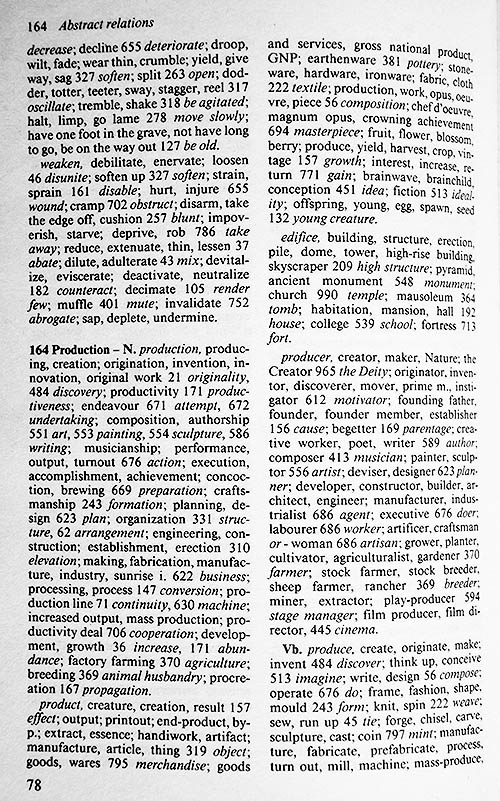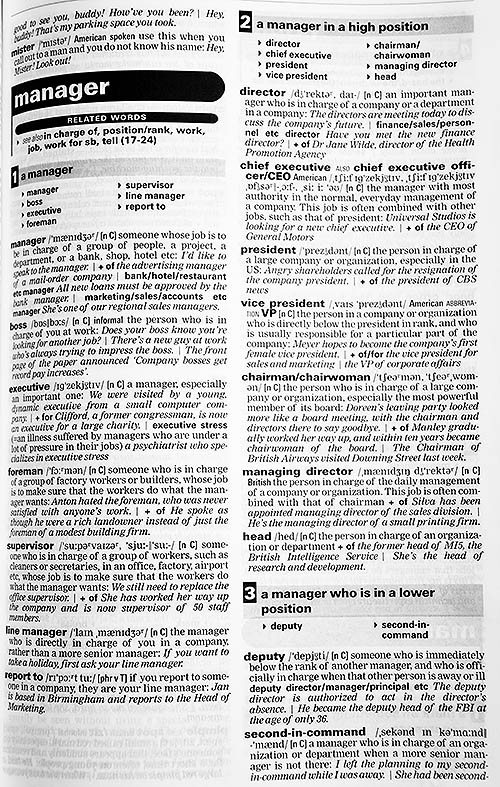A dictionary is a list of words and their definitions. A thesaurus (plural thesauri or thesauruses) does not give definitions of words but lists words grouped together according to their meaning.
The first modern thesaurus, published in 1852 by Peter Mark Roget, is still widely used. The book is organised according to ideas or concepts. You first look up a word in the index in the second half of the book, where you will find one or several synonyms for that word, each with a reference number. Under production, for example, in my copy of Roget’s I find the words product, production and dramaturgy. The first two words refer to section 164 and the third to 594 (having to do with drama and ballet). Here you can see a part of section 164 (the numbers before some of the words refer to further sections in the book):

You will notice the richness of expressions here. There are concrete words such as thing, designer and skyscraper and more abstract ones such as attempt, productivity and idea. When you use a thesaurus like this, you need to understand nuances in meaning.
Roget’s Thesaurus is also available online here.
Online you can also find the following:
en.oxforddictionaries.com/thesaurus
collinsdictionary.com/dictionary/english-thesaurus
merriam-webster.com/thesaurus
and others.
The Longman Language Activator is in a way similar to Roget’s; it is based on concepts. However, it is called a production dictionary instead of a thesaurus – it will help writers produce their ideas. Here is a part of the entry on manager:

Often the word thesaurus is used to denote a dictionary of synonyms or any kind of dictionary.
You can see a comparison between different types of dictionaries here.

Leave a Reply